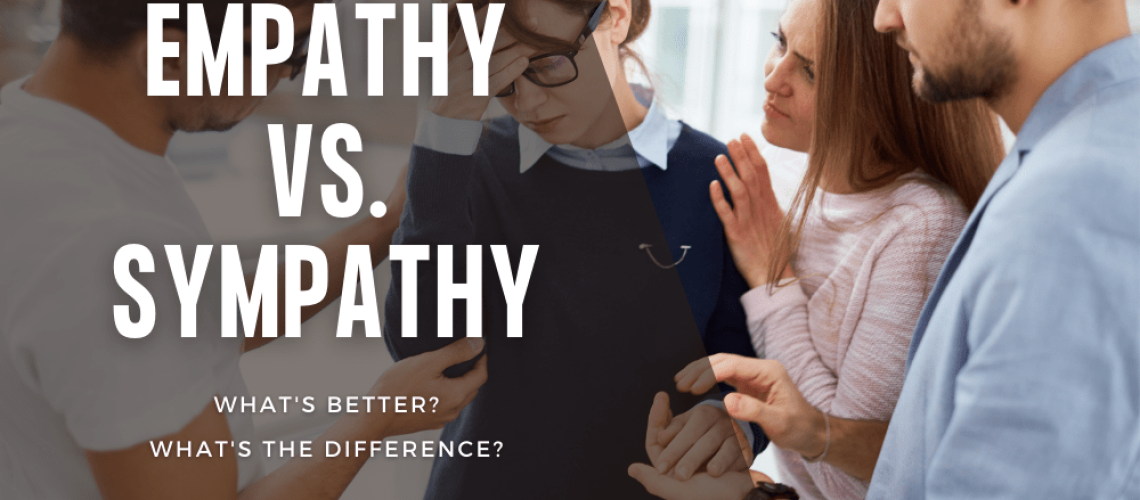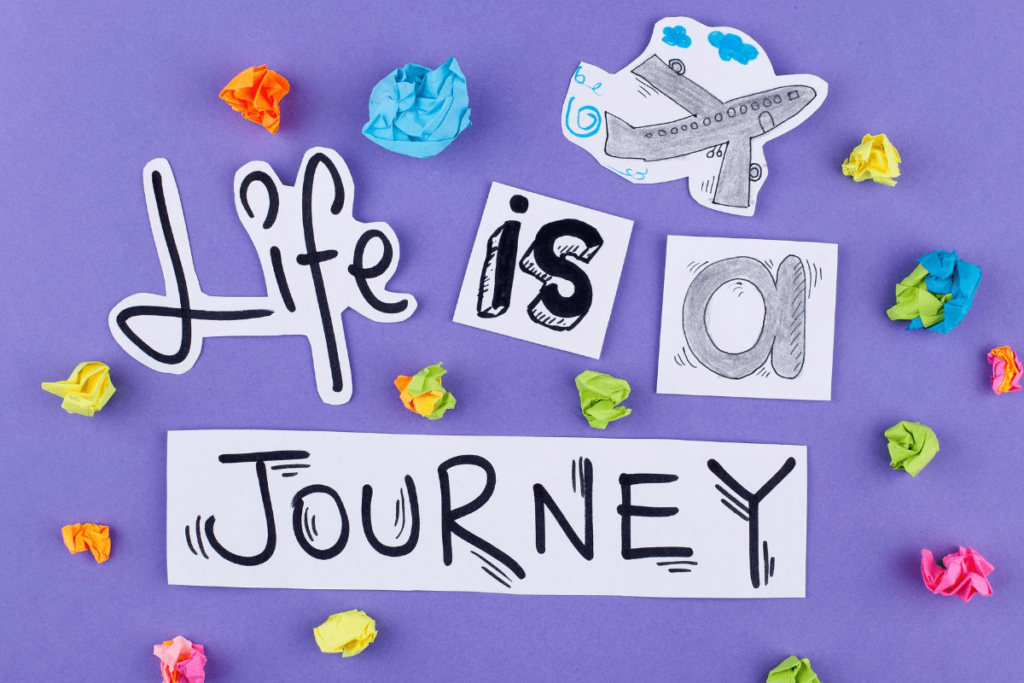Intro
Empathy is important in work
Empathy is a tool that can be developed and used in employment and personal settings to improve productivity, communication, and overall well-being. However, when we think of professional environments, there’s still a sense of a cold, harsh reality of moving up a solid marble ladder next to others who will gladly push us off to reach the top.
When I speak to companies on this topic in person (which currently is my most popular), the majority of employees that are often required to sit in my presentation sit in 3 camps…
- those who are open and willing to learn something new.
- those who have experienced trauma in the workplace from lack of empathy.
- those who are too busy to be there and are distracted as they try to work during the presentation.

The open ones learn. The trauma ones begin to heal through hope. And the busy ones…well, they end up in the hot seat with me involuntarily.
Honestly because…
- a. if you are on a device while I am speaking I assume you are being disrespectful and
- b. you probably need this training the most and I am here to help you.
So, in the hot seat, this person ends up learning a lot about themselves and how they treat others in the process. They leave the hot seat not feeling singled-out, but instead feeling empowered to communicate better in their career and personal lives.
Empathy can be learned!
Particularly for leaders, empathy is arguably the most important skill you need to manage people. However, more often than not, the leaders who need this presentation are usually not present and this is disappointing. The current average of my audience polls shows that 78% of employees wish their leadership was more empathetic. 78%!
Missing Education
Why is it that leadership avoids this topic? Is it because they are too busy? Have poor training? I don’t know the answer to this, but I guess that they were promoted to leadership without actual training on how to be a leader because most places focus on training to do the work, less on training on how to communicate and manage.
I know this first hand when as when I studied business in undergrad the communication course I took dealt more with presentation and public speaking, and less about human connection. I learned about empathy during my counseling psychology master’s and it wasn’t until I pursued a 2nd master’s degree in organizational leadership that I learned about how to manage people. But I don’t think you should need a master’s degree at all to learn how to communicate with others at all. It’s 1 of the most important skills you can learn to take you through life, personally or professionally. Schools need to teach this early on in character education programs. Colleges and career-prep schools should be requiring this within their curriculums. Companies can implement this as a skill within their review process of leadership.
Empathy is one of the most important skills you can learn in life.

Recent Research
The people who are affected by the lack of empathy in the workplace…boy do they feel it. People want to naturally be connected, felt supported, and understood. They want to be part of something bigger than themselves and this is what the “Great Resignation” has been all about. If there was empathy, to begin with in these environments, I wonder if we’d be in a “Great Resignation” at all…hmmm?
So back to our leadership…a catalyst study in 2021 found that empathy in the workplace displayed by leadership down to their staff brought about:
- 61% of employees feel more innovative
- 76% more engaged
- Higher retention amongst the best talent
- 57% more inclusivity
- The big one…that 86% felt they were supported in navigating the demands of work and personal life.
That’s pretty big stuff…and isn’t this what companies are working towards? There seems to be a large focus on all of these things as separate initiatives that perhaps companies are missing the core issue which is bringing empathy into practice with leadership?
Empathy is important in relationships

What Empathy is
How to Practice Empathy

How we think:
Empathy can be a cognitive skill, meaning it’s how we think. If our friend just broke off their engagement to someone they’ve been with for 7 years and you’ve never had that experience, it doesn’t mean you can’t relate. Think about what it may be like to be in that person’s shoes. Perhaps they have a ton of wedding logistics they now need to cancel or that they have to tell all their friends and family the wedding is off, ouch! Or maybe at work, your direct report is trying to meet a deadline while taking care of their sick baby who was sent home from daycare. Even if you don’t have children, can you imagine what it would be like to meet this deadline next to a crying baby who can’t feed or entertain themselves? You see, trying to think and hear another’s experience is a cognitive form of empathy.
How we feel:
At the heart, empathy is validating another’s emotional experience. Maybe you haven’t had to cancel a wedding, but can you imagine what that would feel like? If your friend seems pretty upset and is crying and can barely get the words out, I’m gonna guess they are most likely feeling devastated, defeated, maybe embarrassed, surprised, or in shock. Or that employee with the sick child…they are probably feeling stressed, burnt out, worried about their job security, etc. When we can imagine what another is feeling and communicate and clarify those emotions, we create a validated empathetic connection to the other person. We let them know they are human, give them non-judgmental space to feel, and let them know it’s okay to feel whatever, you are here for them and their emotions because you can imagine the intensity of those emotions too. You may say something like, “I imagine this feels…..right now,” or “I can hear how upset you are about this.”
How we act:
Empathy can also be a behavioral response. Maybe this looks like you meeting your unengaged friend on the bathroom floor to let them know you are right there next to them. Maybe it’s giving your direct report flex-time or the day off with an extended deadline so they don’t need to worry about balancing their sick child and workload. Keep in mind that in this action, there is no reaction. However you act is calculated to meet the other person where they are at, not where you want them to go.
How we talk:
Lastly, empathy is not just about what you say, but also how to say it. This includes your tone, the words you use, and volume. After all, yelling at someone or using a harsh tone when they are upset would not be very empathetic. This is why text messages at times elicit negative emotional reactions because we can’t get a good read on tone or if using all CAPS is yelling or for emphasis. If you sense the other person is starting to get defensive or shut down, it could be how you are talking. If you’re not sure, you can always say, “I’m sensing you disconnecting from this conversation, what’s going on?”
Next time you find yourself on the other end of an emotional conversation, that’s your cue to practice these skills. Feel free to refer to this post, save it, practice the skills one or all at a time, and see if you can continue building on these skills over time. Just like learning anything, it takes time, patience with your progress, and persistence!
What Empathy is Not
Now that we know what empathy is, let’s move on to what it is not. I’m going to only discuss the heavy hitters here because they are the most common. Here are go!
Sympathy:
This is the big one. People confuse empathy with sympathy all the time. Sympathy is when people say, “I’m sorry,” or “At least…you have your job, your hair, insert whatever here.” Sometimes sympathy comes out in a comparison story and this also isn’t empathy. Using our previous examples, this could be, “I had another friend call off her engagement too, that just sucks.” Or “When my kids were little I hated when they were homesick, I’m sorry.” Does either of these connect emotionally to the other person’s experience in a way that helps them feel validated, heard, and understood? Probably not, because not all situations and feelings are the same. So, if you find yourself talking about yourself in the way of relating to your personal experience, that means you’re sharing sympathy and not empathy.
Empathy is about the other person, not you

Advice/Correcting
Here are the next biggies. We naturally want to help others, so this is an easy trap. Giving advice is not helpful unless, and here’s the key….someone directly asks you for it. If they aren’t asking, don’t offer! Avoid saying things like “I think you should…” “I know what you can do…,” or “Have you tried…?” This is similar to correcting where you might start with “You’re doing it wrong, let me tell you what to do…,” “You need to do this,” “This is how it’s done…” I know, I know. This is hard to avoid. If you are itching to give your advice, you can ask first, “Would you be open to hearing my advice/opinion on this?”
Reacting or Dismissing
Lastly, whenever someone shares something, we have an opportunity to connect with them. If we react, it shows the other person that we are judging them and not giving them the space to talk openly and honestly. A reaction could be verbal like a gasp or behavioral like maybe you make a face of disgust when the other person is explaining they are embarrassed by a choice they made. You see, you don’t have to say anything to show someone they are being judged, so let’s be mindful of how we react to others.
If we dismiss them, we are stripping out empathy altogether. Most often, people dismiss others by talking about themselves. Using our examples one last time, this could look like, “I’m so glad John didn’t call off our engagement, I’d be pissed!” or “You think one crying baby is bad, my sister has twins!” Dismissing could also be completely ignoring what the person says or changing the subject.
Empathy Brings People Together
If you want to improve your relationships at home or work, empathy is the way to go. It allows you to nurture the relationships in your life from an ego-less place of compassion and kindness. A place where you can focus on the other person in a way that opens up a loving, human connection that at our core we all crave.
I wish you the best in practicing these skills while building the awareness of how you use empathy (or not) in personal and professional conversations.
Empathy-related Books to Check Out:
Empathy (HBR Emotional Intelligence Series) by Harvard Business Review
4 Essential Keys to Effective Communication in Love, Life, Work–Anywhere! by Bento C. Leal III
Taking People with You: The Only Way to Make Big Things Happen by David Novak
Emotional Intelligence: Why It Can Matter More Than IQ by Daniel Goleman


